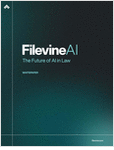To most Americans, the Committee on Foreign Investment in the United States is just another innocuous bit of D.C. bureaucracy. The interagency committee, chaired by the Treasury secretary but with representatives from Defense, State, Justice, Homeland Security, and other departments, reviews proposed foreign acquisitions in the U.S. for potential national security issues and can recommend that the president block deals.
To China, that makes CFIUS anything but innocuous. It has emerged as perhaps the largest single obstacle to Chinese mergers and acquisitions activity in the United States, and rejection of a number of attempted deals, especially in the high-tech sector, has fueled perceptions among Chinese business leaders that CFIUS is stacked against them.
They have this feeling that CFIUS is something the U.S. government uses against Chinese companies in particular, says Janet Hui, cohead of the mergers and acquisitions practice at Beijings
Jun He Law Offices. There is a feeling that the U.S. government is hostile to Chinese investors.
Such suspicions can flourish in part because CFIUS review is secret, with rejected parties generally given no explanation of the committees decisions. One Chinese company is now pushing to change that. Ralls Corp., a company started by executives of Chinese state-owned heavy equipment maker Sany Group Co. Ltd., is currently suing President Barack Obama and CFIUS for allegedly violating its right to due process by blocking Rallss efforts to purchase wind farms in Oregon located near a U.S. Navy installation without giving any reasons and without allowing Ralls a hearing.
At the same time, Chinese government and business leaders have hinted that the U.S. will pay an economic price for CFIUS and congressional opposition to Chinese deals. A number of editorials in official media over the spring noted that Europe was receiving much more investment from China than the U.S. and would likely see greater job creation as a result.
That message was underscored last month, when an executive vice president at Huawei Technologies Co. Ltd. told a conference of investors that his company, which has seen a number of deals blocked over national security issues, was no longer interested in the U.S. market and would focus more on Europe.
Washington, D.C.based partners who specialize in guiding companies through the CFIUS process have noted Chinese angst about it.
We hear from Chinese clients all the time that the CFIUS process isnt transparent, which is true, and also that its potentially unfair, says Mark Plotkin, a partner with
Covington & Burling.
Fairness is a relative concept, as most sensitive sectors of the Chinese economy are simply closed to foreign investment. Moreover, Plotkin and other lawyers note that the Chinese perception doesnt completely jibe with reality. Plotkin points out that many major transactions have recently passed muster with CFIUS, including China National Offshore Oil Corp.s recent $15 billion acquisition of Nexen. Though Canadian, Nexen had major operations in the Gulf of Mexico and elsewhere in the U.S. and required CFIUS approval; Covington advised Nexen on the process.
Ivan Schlager, a D.C. partner with
Skadden, Arps, Slate, Meagher & Flom who earlier this year successfully advised Massachusetts-based lithium-ion battery maker A123 Systems on CFIUS approval for its acquisition by Chinas Wanxiang Group, agrees. There have been a number of transactions that have been approved smoothly, but they dont get written up as much [by the media], he says.
Indeed, there seems to be a consensus among Washington CFIUS lawyers that Ralls and Huawei, the poster children in China for unfair treatment, hurt themselves by acting in ways that fed U.S. government suspicions.
Schlager says Huawei founder and ex-Chinese military officer Ren Zhengfeis claim that his company has no ties to the Chinese government has always lacked credibility with Congress and U.S. national security agencies, particularly in light of the companys murky ownership structure and secretive management. As such, Huaweis periodic public campaigns touting its independence from the Chinese state probably backfired.
Successful Chinese state-owned enterprises dont hide the fact that they have ties to the government, says Schlager.
Ralls initially tried to make its wind farm acquisition without CFIUS approval. Theres not a lot of sympathy in Washington for Ralls, says Plotkin. By not going to CFIUS, they created a perception that they were trying to circumvent the process.
The lawsuit Ralls filed last fall, the first ever such suit to result from a CFIUS review, sought to overturn decisions by both CFIUS and the president. A D.C. federal judge threw out most of Rallss claims in February on the grounds that the presidents decision in the matter was not subject to judicial review. But the court did permit Ralls to move ahead with a due process challenge claiming that Ralls had a right to know the reasons for an adverse decision and to have an opportunity to rebut them.
In filings in support of its due process claim, Ralls, represented by former U.S. assistant attorney general Viet Dinh of
Bancroft, pointed out that companies whose deals are scuttled by CFIUS have less procedural recourse than groups the U.S. government designates as foreign terrorist organizations.
Dinh declined to comment on specifics of the case but said in an email:
Ralls v. Obama established for the first time federal court jurisdiction over CFIUS action. However the case ultimately turns out on the merits, I think the greater transparency and consistency that comes with judicial review will strengthen the CFIUS decision-making process and provide better clarity for cross-border transactions.
But most CFIUS lawyers who spoke to
The Asian Lawyer say they are wary of drastically changing the current process, noting that many in Congress would like to make it even more stringent. Plotkin says few on Capitol Hill are very concerned about CFIUSs transparency. If anything, more in Congress would like to see the process become less transparent and possibly altered to take into account broader concepts of economic rather than just national security.
In Washington, if you open the door to change, you dont know what youre going to get, he says.
Stephen Heifetz of
Steptoe & Johnson does think CFIUS members should keep in mind Chinese sensitivities on the subject and try to balance those against the severity of national security threats. He cites CFIUSs 2009 blocking of China’s Northwest Non-Ferrous International Co.s attempt to buy Nevada’s Firstgold Corp. gold mine on the grounds that the mine was located to close to a military base.
Heiftez notes there were many other ways a foreign power could have achieved similar proximity to the installation that CFIUS would not have prevented. Firstgold was a case in which the [U.S. government] sought to use CFIUS to address an espionage concern, but CFIUS probably could provide negligible help, and the harm of using CFIUS in that type of case perhaps outweighed the benefit, he says.
The harm would come in the form of increased trade tensions between the U.S. and China. Traditionally, foreign investment has been a good thing for the U.S. economy, says Heifetz. It would be unfortunate if the U.S. were seen as trying to hinder it.
He thinks the administrations recent efforts to engage high-level Chinese officials directly on the issue of cybersecurity is an example of a potentially more productive approach.
Schlager notes that CFIUSs inclusion of both economic and national security bodies is intended to achieve a balancing of interests. But he points out that under an executive order in place since the Bush administration, the constituent CFIUS agencies are required to be unanimous on the need to impose conditions on deals to mitigate security risks.
The risk assessments the security agencies provide are probably far scarier than they need to be to get the economic agencies comfortable with mitigation, says Schlager, noting that the latter have traditionally sought to avoid intervening in the market. They basically have to paint a doomsday scenario.
Plotkin also says he would like to see CFIUS tailor its decisions as narrowly as possible to avoid any perceptions of unfairness. But he also notes that political and strategic tension between China and the U.S. is a fact of life, and its no use pretending Chinese investments in America will be treated the same as, say, those from the United Kingdom.
The reality is that countries have different bilateral relationships, and that results in different levels of scrutiny in areas like this, says Plotkin. Its an uncomfortable reality, but it is the reality.





